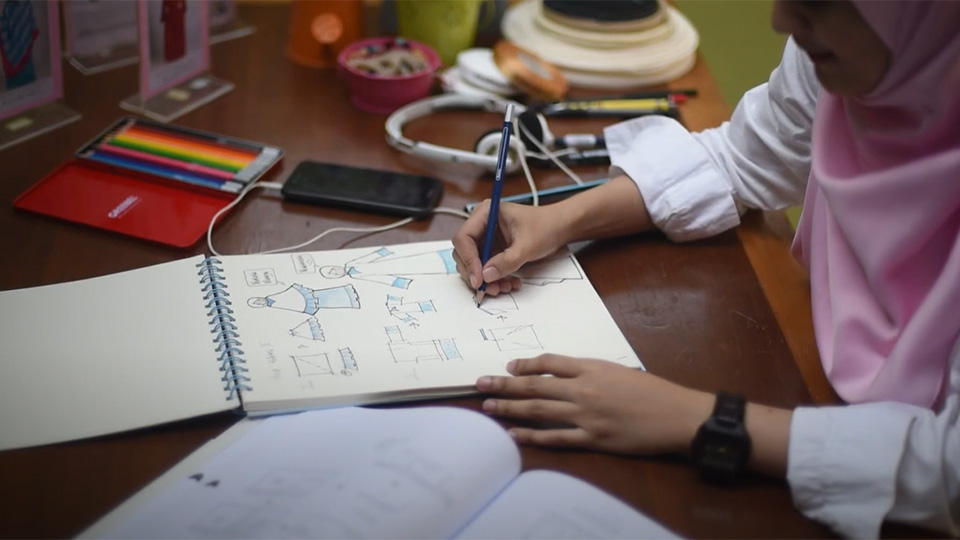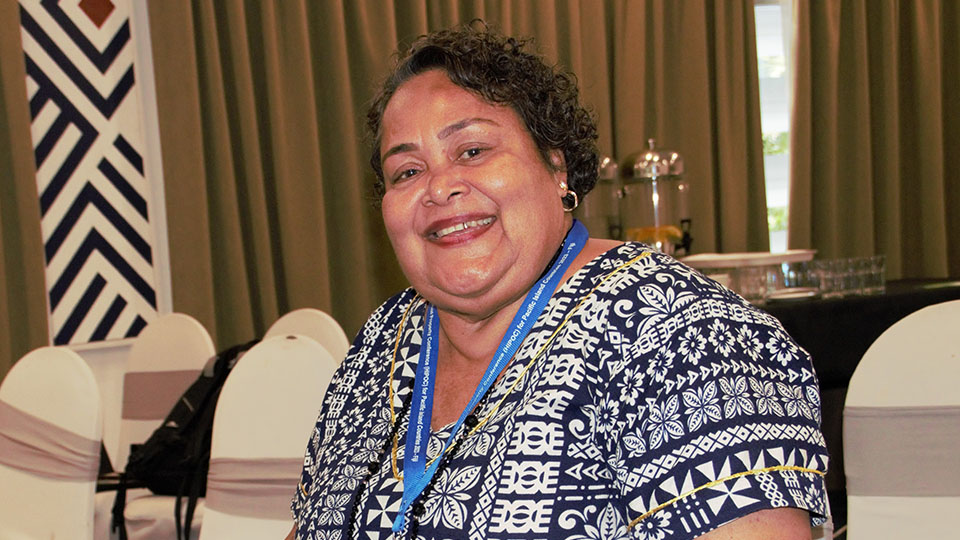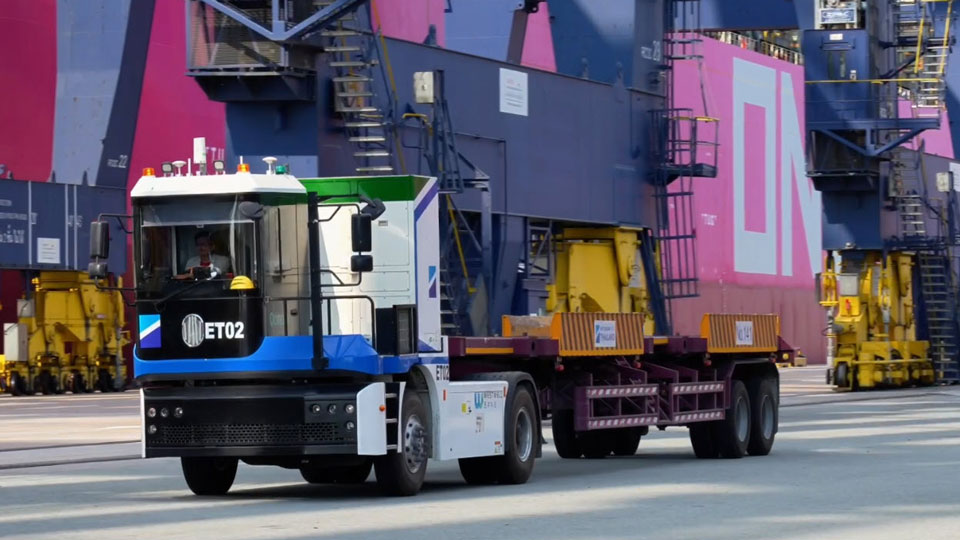Background

solutions enable theSOFTtribe team to overcome
constraints.
Herman Chinnery-Hesse does not balk at a challenge. He left a comfortable life as a software developer in London in 1990 and set out to prove to skeptical friends what he had always maintained: his native country, Ghana, was a land of opportunity waiting for entrepreneurs with innovative business ideas.
With no start-up capital beyond limited personal savings, no infrastructure, and no equipment other than his old computer, it was clear to the young man that he had to rely on the only resources available to him: his determination and his creative talent for writing software programs. “I knew I was no genius,” says Chinery-Hesse, “but I had seen for myself in the [United States] how it was possible to take a good idea and turn it into a good business.” And so was born S.O.F.T. (later renamed as theSOFTtribe Limited) at a time when the Ghanaian software industry was non-existent.
On the basis of a single software package which he had developed when freelancing in the United Kingdom, Chinery-Hesse landed his first contract with a Ghanaian travel firm while still en route to Accra. The payment enabled him and his founding partner, Kojo Gyakye, to buy a second computer. When they managed to receive their first contract to write a network application, the company still did not even have a network of its own on which to run the program. The young entrepreneurs had an early breakthrough when the Switzerland-based multinational, Nestlé®, contracted theSOFTtribe to develop production management software for its operations in Ghana. Chinery-Hesse laughs as he remembers the bemused expressions on the faces of the visiting Nestlé executives when he finally let them see the theSOFTtribe business premises – a couple of desks in his bedroom in his parent’s home. “But by then it was safe to show them,” he recalls, “the project was near completion and we had won their confidence in our ability to deliver.”
Innovation
As an African start-up company, theSOFTtribe had to persuade each potential new client that it was a better choice than the international, big-name competitors. The company’s strategy was to offer systems specifically designed to be more reliable in the African context, and to back these up with a professional support service better than that provided by competitors.
theSOFTtribe’s products are not necessarily very sophisticated, but the company realizes that simplicity can be an advantage in Ghana. Key to the company’s success is their innovative and core concept of “tropical tolerance”, which takes into account the unique characteristics of the African business and social environment. theSOFTtribe’s systems are designed to meet the more challenging conditions of the developing world. Chinery-Hesse explains it in the following way:
People tolerant: “The training process and documentation cannot assume any prior exposure or IT skill. Making the software easy to use is the first challenge, but it is also critical to make sure that unqualified staff can maintain the system. A tropical tolerant system will work without a qualified database administrator”.
Communications tolerant: “There are only about 2 main telephone lines per 100 persons in Africa. African countries generally have less total Internet bandwidth than most office blocks in the United States. So software systems need to be designed to keep working when the phone lines are down. Due to the small amount of available bandwidth, systems also need to be economical with the amount of transmitted information.”
Power tolerant: “In Ghana, three power failures a week, lasting over two hours are common. A system in this scenario that can recover immediately from a power failure will save over 13 days in extra downtime per year.”
Capital tolerant: “Our systems need to be low budget and cost effective. Systems also need to be highly modular so that an enterprise solution need not be installed all at once but rather as capital is available over a medium to long term.”

TheSOFTtribe developed the Limpopo software to run
Busy's accounts.
The formula reflecting local needs proved to be successful. The company has been able to win what Chinery-Hesse estimates as a 60 to 70 percent market share in competition with some of the world’s best known companies. For customers such as the British High Commission in Accra, which uses the Akatua payroll package to manage its locally engaged staff salaries, the reasons for choosing theSOFTtribe’s product were clear-cut: “It met our needs and local technical support was readily available,” says the systems administrator.
Partnerships
Until the mid-2000s, theSOFTtribe efficiently provided business software and consulting for the West African market based on its existing business models. However, it was clear that the market for its products in the region was approaching the saturation point. Despite an impressive track record, Chinery-Hesse and his team were unable to win government-funded projects. The company did not have sufficient means either to compete with global software firms or to enter into markets abroad. It was during this time that the company management thought about partnerships with large internationally renowned enterprises.
The situation prompted Chinery-Hesse to initiate negotiations with Microsoft Corporation (Microsoft®) about the potential of one of Microsoft’s product groups as the basis for theSOFTtribe’s products. In 2006 the two companies reached an agreement under which theSOFTtribe received authorization to use Microsoft Dynamics NAV, a software platform that enables software developers to add layers of functionality on top of the existing platform. The advantage for Chinery-Hesse is that his company can now focus on optimizing products based on Mircosoft Dynamic NAV’s mature foundation. Microsoft’s interest lies in collaborating with an established African partner. Microsoft and its Ghanaian counterpart now have a formal relationship and are working closely to expand theSOFTtribe’s businesses in Africa and abroad.
Chinery-Hesse also has a strategic partnership with BusyInternet, Ghana’s largest privately owned and operated information and communication technology (ICT) center. BusyInternet was set up in 2001 with a unique mission to provide both commercial services and social development by providing an incubator for small business and tech pioneers, combined with immensely popular 24-hour internet café facilities. In a mutually reinforcing partnership, BusyInternet uses theSOFTtribe software. Some 1,800 visitors per day use BusyInternet’s facilities.
IP Management
Chinery-Hesse believes that the business success of his company, almost to its entirety, has been based on creating and selling its intellectual property (IP) assets. The company management notes that underdeveloped IP protection structures in Ghana have increased its transaction costs. “In a poor country like this, IP protection is still minimal, and illegal copying of software is the norm,” explains Chinery-Hesse. “Seeking legal enforcement action against individuals is not worth our while. We have tended to protect our products through technological means, e.g., by writing custom software that is difficult to copy and needs theSOFTtribe support to install it. But the bigger we get, the more we will need effective IP legal structures.”
theSOFTtribes’s emphasis on the significance of its IP is reflected in its deal with Microsoft. One of the most important aspects of the deal is that although Chinery-Hesse’s company uses the product platform from Microsoft, IP rights (IPRs) of all subsequent developments done on the product are retained by the Ghanaian company. The deal thus encourages innovation and ensures a framework for preserving theSOFTtribe’s intellectual capital.
Branding
Initially the company was known as S.O.F.T., but in order to develop a more distinctive brand name, the company changed its name in 2004. The former S.O.F.T. name had been too prone to potential confusion with other businesses, products and imitators, registered – deliberately or not - under similar variants. By retaining the “soft” element while adding a more African feel, they created theSOFTtribe’s brand logo, now a familiar sight in offices and hotels around Ghana.
Licensing
One of theSOFTtribe’s recently developed and increasingly used product is its microfinance management software which is based on the Microsoft Dynamics platform. Based on well-established microcredit approaches to reduce poverty and foster social development, the software enables small-scale lending to promote grassroots enterprises. The company licenses the software to microfinance organizations in the region. In accordance with the deal with Microsoft, the IPRs of the software and the revenue from the licensing are retained by theSOFTtribe.
Business Results
Today, theSOFTtribe is the market leader in Ghana. Its systems include payroll management, cyber café billing, airline reservation and ticketing, micro-finance fund management, plantation management, and bespoke software, such as the one developed for the Ghanaian timber industry. TheSOFTtribe employs over 70 staff, including the largest collection of code writers in Ghana not purely devoted to the internal demands of a single organization. It serves over 250 clients, prominent among which are major multinationals such as Pepsi®, Unilever® and oil giant Total® S.A. It exports to eleven other countries in the region. All this has been accomplished without having had access to business loan financing; only recently some investment groups have been involved in theSOFTtribe. Chinery-Hesse’s company has won several awards including the Ghana Millennium Excellence Award in 2005.
The success of theSOFTtribe led Chinery-Hesse to establish another company, Black Star Line (BSL) in 2007. BSL draws inspiration from Amazon.com® and PayPal®, and seeks to provide wealth creating opportunities for the average African.
Leveraging Creativity and Ingenuity
From his own experience, Chinery-Hesse believes that technology is the only way for Africa and other impoverished regions to get richer. He argues that lack of proper infrastructure makes these regions less competitive, but entrepreneurs and creators in developing countries can do remarkably well in the ICT sector. IP protection facilitates the creators to leverage their creativity and ingenuity. In the words of Chinery-Hesse, “everything that we have been able to achieve… has been based on creating and selling our own IP.”



